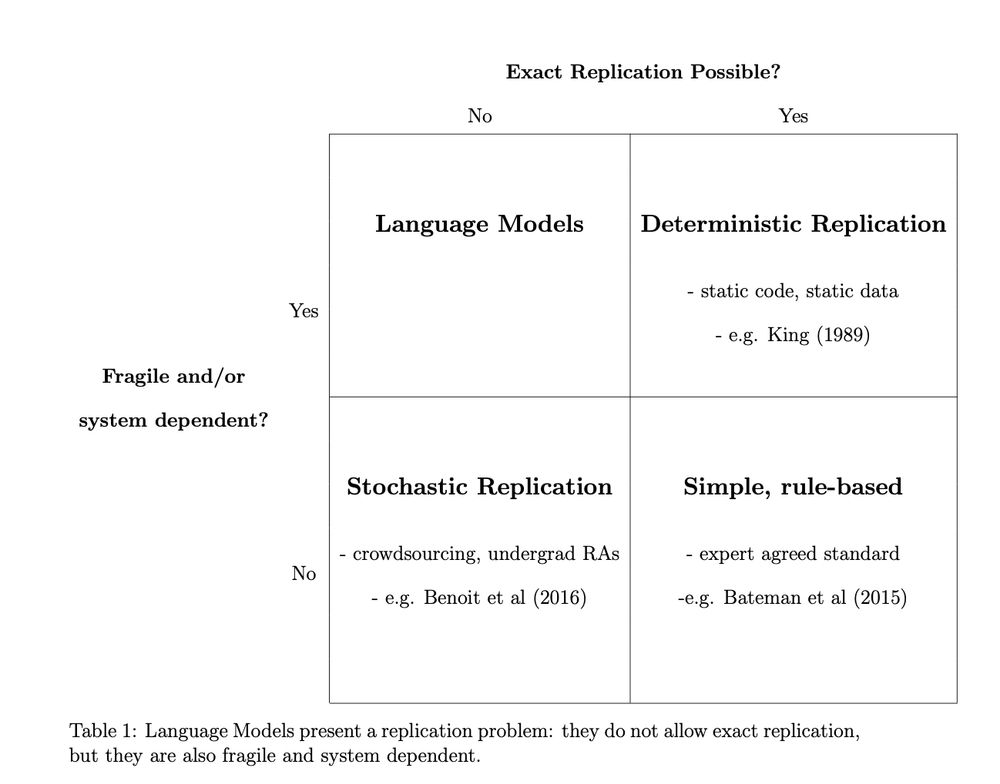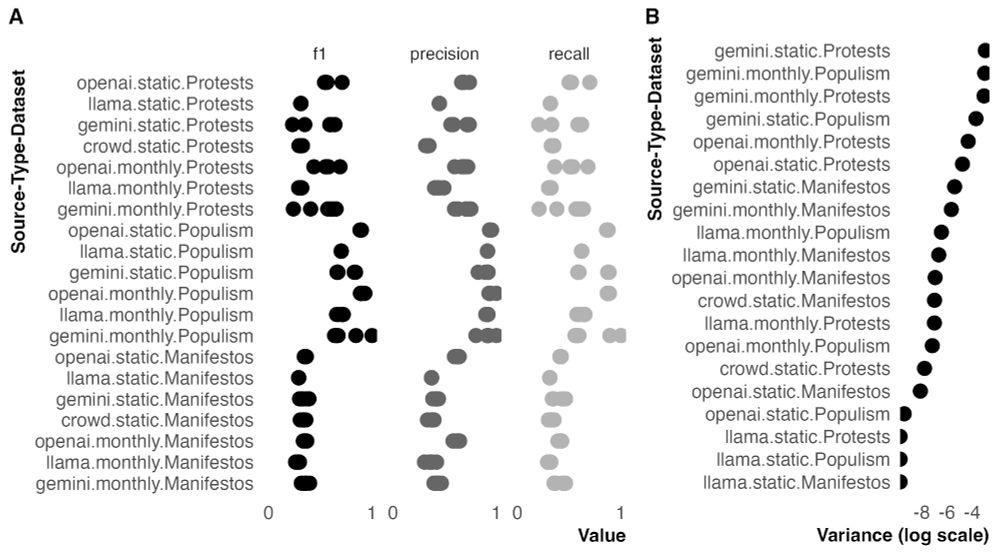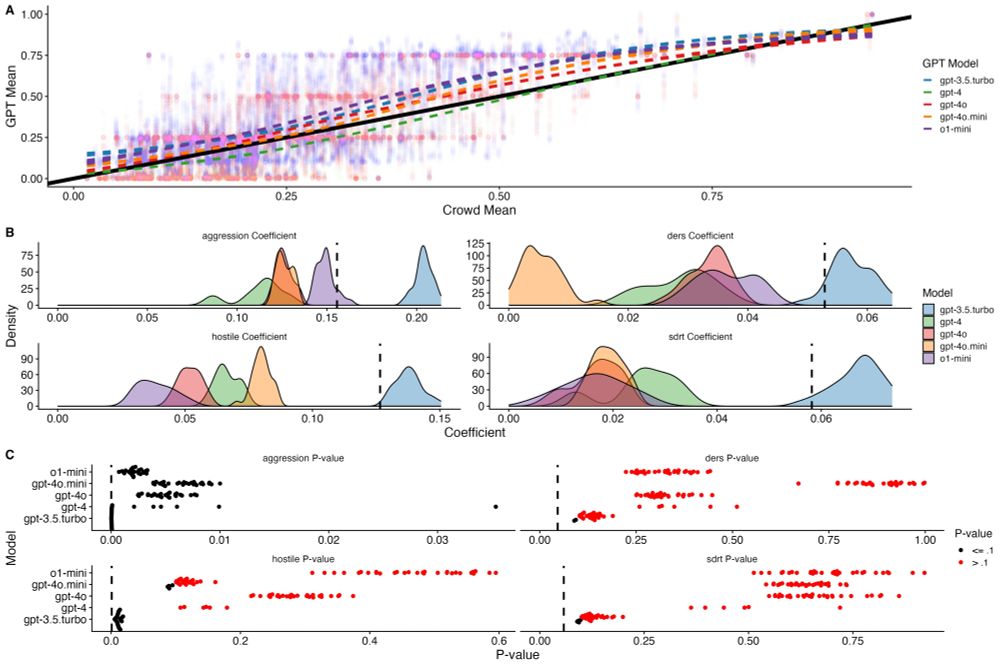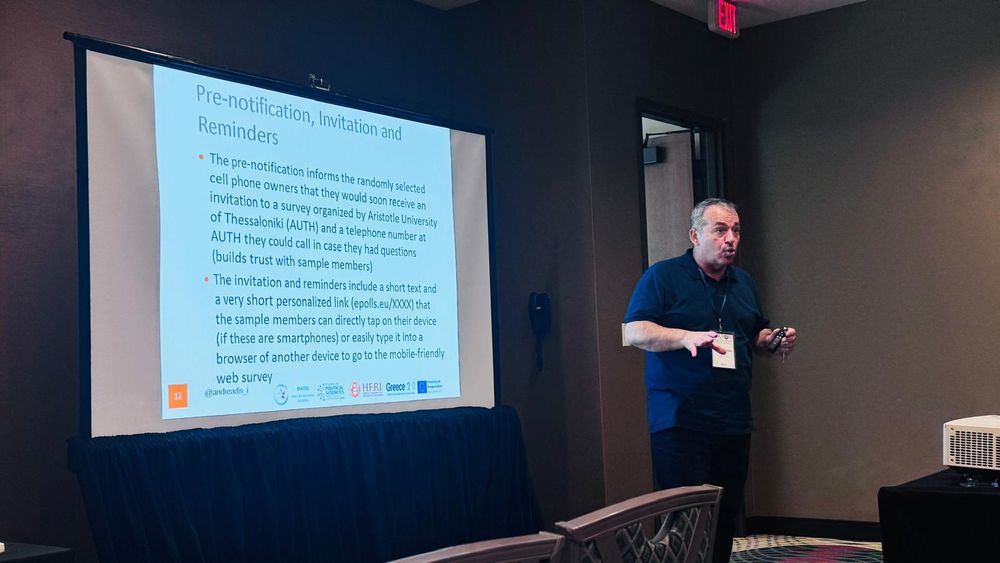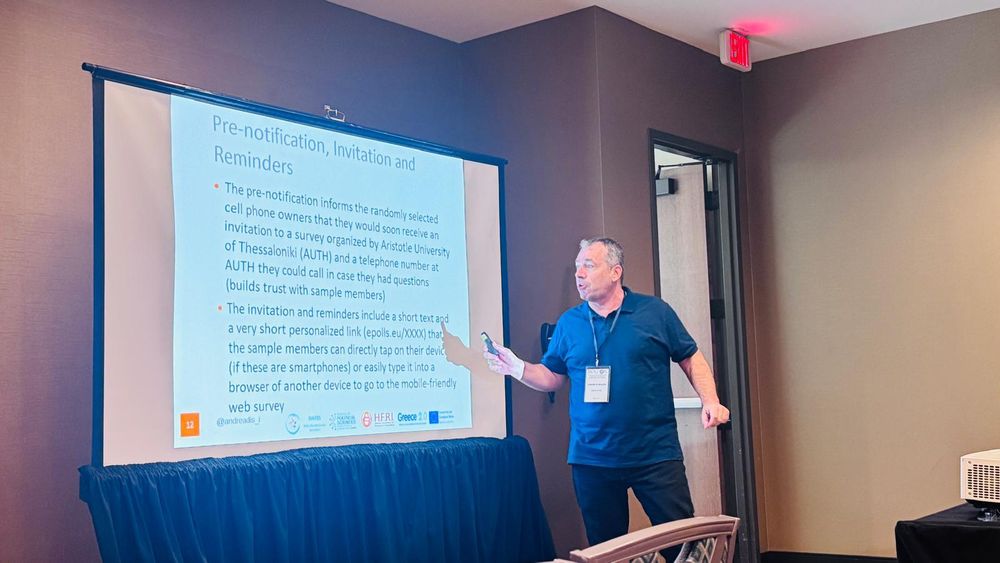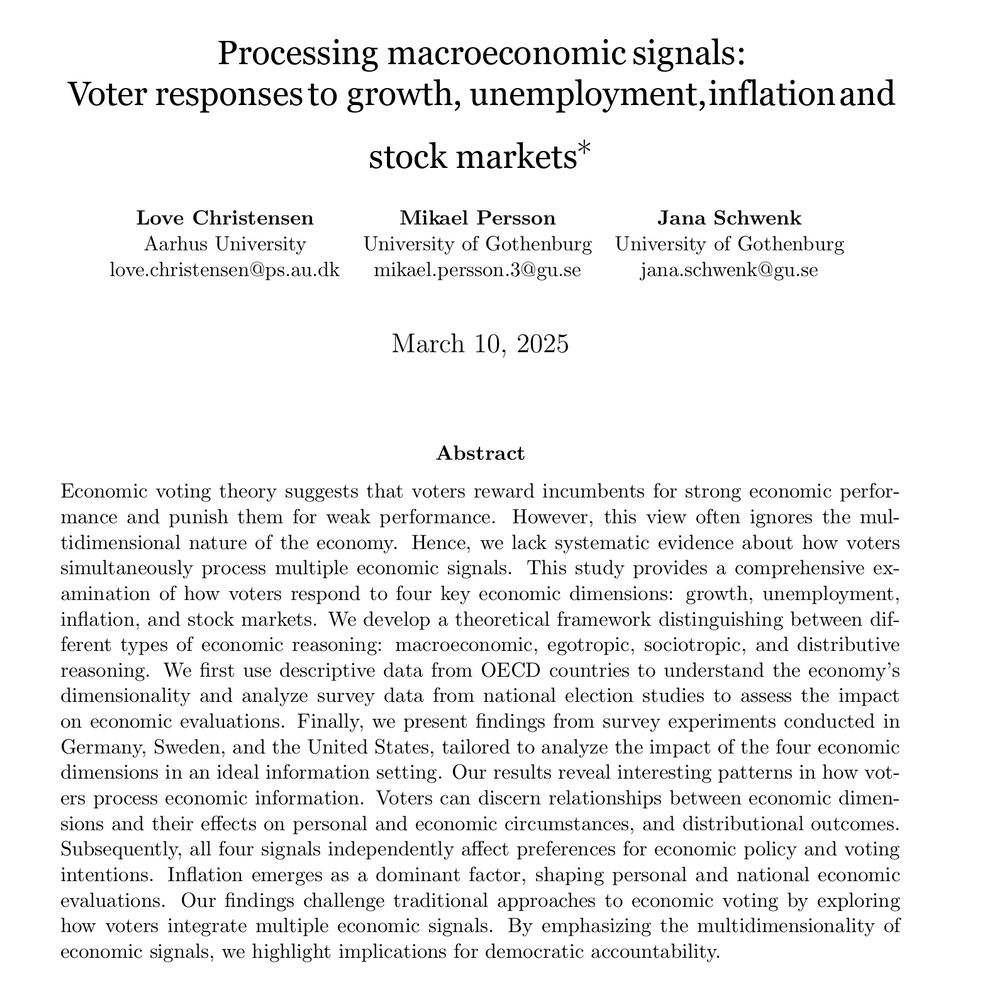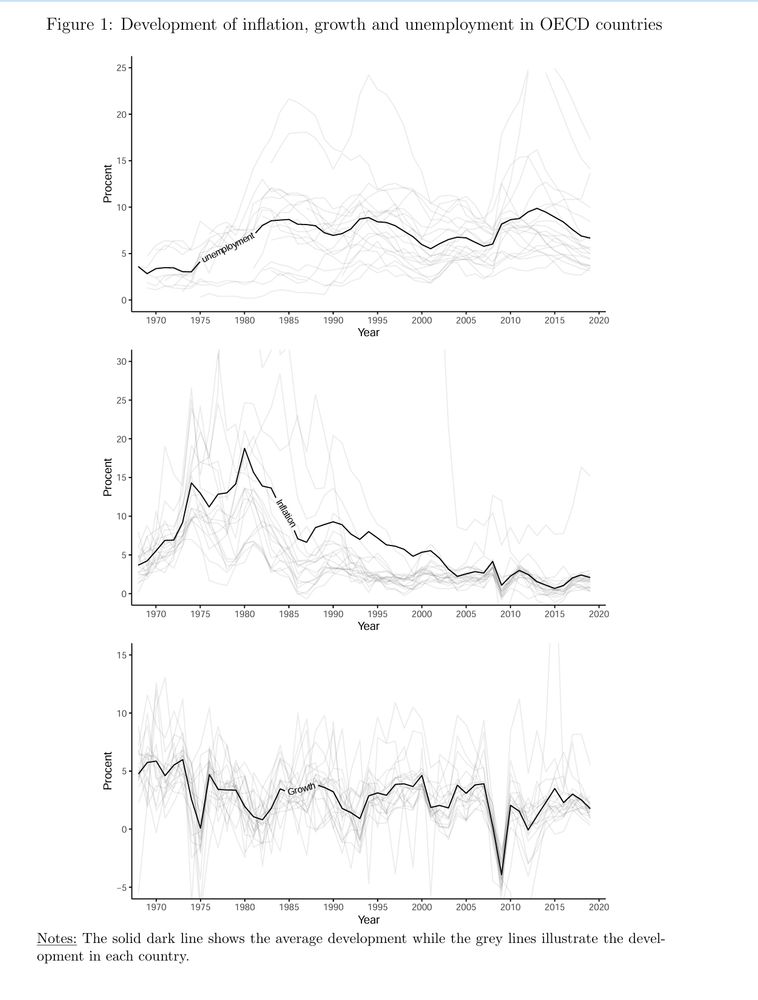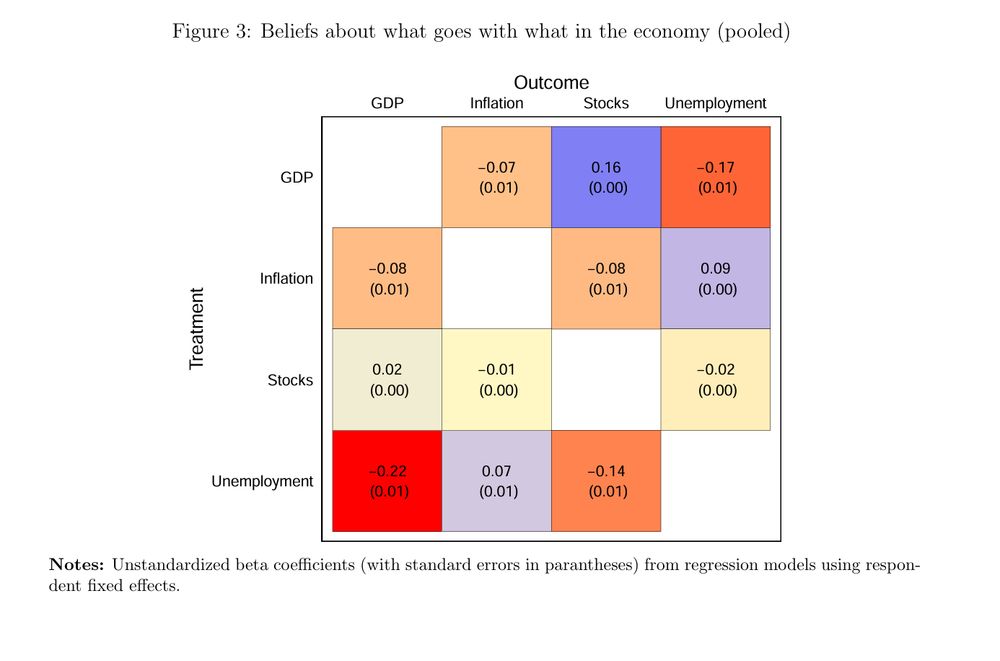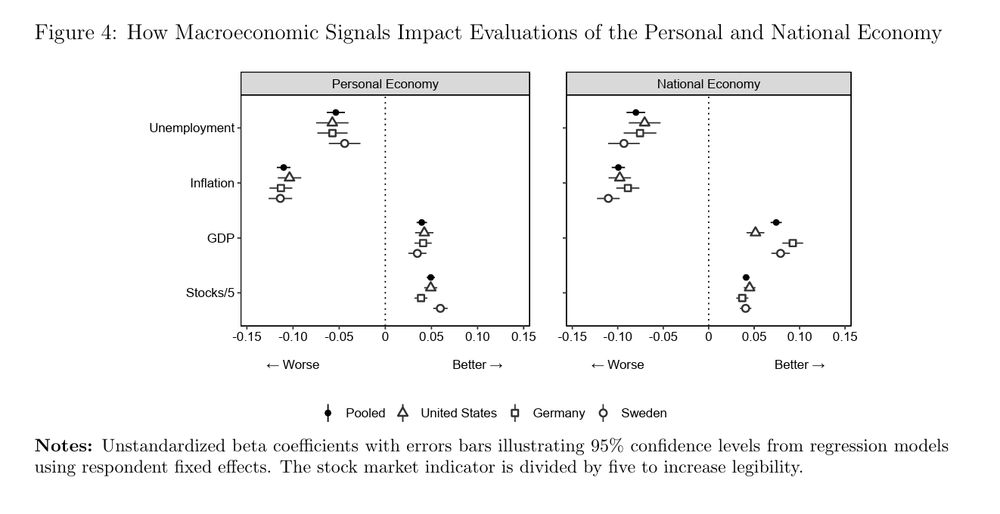
Plot showing perception of voter ideology of candidates overtime. It is separated by House and Senate. Republicans are drifting slightly to be more conservative, Democrats are mostly staying in one place.

Plot showing messaging ideology of candidates overtime. It is separated by House and Senate. There is increasing separation between parties over time, with Republicans becoming messaging more moderately during the Trump era and then shifting to the right during Biden.
New paper with @hjghassell.bsky.social and @michaelheseltine.bsky.social out in @bjpols.bsky.social.
We develop measures of voter perceptions of candidate ideology and candidate messaging ideology and find that perception's are related to what candidates say www.cambridge.org/core/journal...
03.10.2025 12:27 — 👍 31 🔁 16 💬 1 📌 2


🤔 Do surveys exaggerate democratic support due to social desirability bias (SDB)?
➡️ Using survey-mode variation & list experiments in 24 countries, @pcmagalhaes.bsky.social & @aarslew.bsky.social find no evidence that SDB inflates democratic attitudes www.cambridge.org/core/journal... #FirstView
19.09.2025 06:58 — 👍 53 🔁 22 💬 1 📌 0
yes
24.09.2025 18:14 — 👍 32 🔁 5 💬 2 📌 0

Americans are most likely to encounter people from different economic classes in gas stations, restaurants and hotels. This mixing is least likely to happen in elementary and secondary schools, while exercising, and in supermarkets. www.sciencedirect.com/science/arti...
17.09.2025 19:38 — 👍 84 🔁 25 💬 4 📌 6

ggplot2 4.0.0
A new major version of ggplot2 has been released on CRAN. Find out what is new here.
I am beyond excited to announce that ggplot2 4.0.0 has just landed on CRAN.
It's not every day we have a new major #ggplot2 release but it is a fitting 18 year birthday present for the package.
Get an overview of the release in this blog post and be on the lookout for more in-depth posts #rstats
11.09.2025 11:20 — 👍 850 🔁 282 💬 9 📌 51

The Weird and Wonderful History of British Election Voter Segmentations
This "Stockport Man" outlines his ironic (and unironic) love of the a proud British election tradition
The weird and wonderful history of British voter segmentations: the names, the ideas, the myths!
From how "the man on the Clapham omnibus" changed English common law to how "Gail's Voter" helped the Lib Dems gain 64 seats in 2024 to what works well when doing segmentation (and what doesn't)
09.09.2025 08:30 — 👍 20 🔁 12 💬 3 📌 4

In an experiment, Pew Research Center demonstrated that opt-in and probability-based surveys produced very different results about young adults' views of the Holocaust and abortion.
Remember, if you encounter what seems like an implausible survey finding, ask:
1. Were survey respondents selected randomly or was this an opt-in poll?
2. Could the results, especially for young adults, be driven by bogus respondents?
Keep this post in mind: www.pewresearch.org/short-reads/... 🧪
08.09.2025 18:42 — 👍 259 🔁 115 💬 6 📌 5
Full (and fun!) days at #ECPR2025 @ecpr.bsky.social last week, presenting and catching great panels with work from our @datisproject.bsky.social s and @eupoplink.bsky.social teams.
05.09.2025 09:56 — 👍 5 🔁 2 💬 0 📌 0
Thank you! Absolutely — hopefully we’ll cross paths soon =D
05.09.2025 09:26 — 👍 1 🔁 0 💬 0 📌 0
Congratulations!!
04.09.2025 16:19 — 👍 1 🔁 0 💬 1 📌 0

Large partisan differences on the effect of tariffs on the economy, though relatively little change over time. >50% of Reps say tariffs help. Those saying hurt the economy up slightly across partisanship; help economy down a bit with independents. @MULawPoll national surveys.
02.09.2025 19:02 — 👍 8 🔁 3 💬 0 📌 1
"Black cities were at the epicenter of fraud dialogue... electoral confidence deteriorated most for racially-resentful Whites post-election in 2020.... racially resentful White Americans are especially likely to believe accusations of fraud when...racialized"
link.springer.com/article/10.1...
29.08.2025 18:02 — 👍 59 🔁 13 💬 3 📌 4

Models as Prediction Machines: How to Convert Confusing Coefficients into Clear Quantities
Abstract
Psychological researchers usually make sense of regression models by interpreting coefficient estimates directly. This works well enough for simple linear models, but is more challenging for more complex models with, for example, categorical variables, interactions, non-linearities, and hierarchical structures. Here, we introduce an alternative approach to making sense of statistical models. The central idea is to abstract away from the mechanics of estimation, and to treat models as “counterfactual prediction machines,” which are subsequently queried to estimate quantities and conduct tests that matter substantively. This workflow is model-agnostic; it can be applied in a consistent fashion to draw causal or descriptive inference from a wide range of models. We illustrate how to implement this workflow with the marginaleffects package, which supports over 100 different classes of models in R and Python, and present two worked examples. These examples show how the workflow can be applied across designs (e.g., observational study, randomized experiment) to answer different research questions (e.g., associations, causal effects, effect heterogeneity) while facing various challenges (e.g., controlling for confounders in a flexible manner, modelling ordinal outcomes, and interpreting non-linear models).

Figure illustrating model predictions. On the X-axis the predictor, annual gross income in Euro. On the Y-axis the outcome, predicted life satisfaction. A solid line marks the curve of predictions on which individual data points are marked as model-implied outcomes at incomes of interest. Comparing two such predictions gives us a comparison. We can also fit a tangent to the line of predictions, which illustrates the slope at any given point of the curve.

A figure illustrating various ways to include age as a predictor in a model. On the x-axis age (predictor), on the y-axis the outcome (model-implied importance of friends, including confidence intervals).
Illustrated are
1. age as a categorical predictor, resultings in the predictions bouncing around a lot with wide confidence intervals
2. age as a linear predictor, which forces a straight line through the data points that has a very tight confidence band and
3. age splines, which lies somewhere in between as it smoothly follows the data but has more uncertainty than the straight line.
Ever stared at a table of regression coefficients & wondered what you're doing with your life?
Very excited to share this gentle introduction to another way of making sense of statistical models (w @vincentab.bsky.social)
Preprint: doi.org/10.31234/osf...
Website: j-rohrer.github.io/marginal-psy...
25.08.2025 11:49 — 👍 978 🔁 286 💬 47 📌 20

🇬🇷 @gotinakos.bsky.social presented Greece’s Country Report on Populism and Euroscepticism.
Focus on party strategies, public attitudes, and the Greek case in comparative perspective.
25.08.2025 16:45 — 👍 6 🔁 1 💬 0 📌 0
If you have some discretionary time, a coffee around the marina in Aretsou could be worth it, but you'll most likely need to commute by bus from the city center. Kastra can be lovely too, but ideally not during peak sun hours-also closer to campus.
25.08.2025 12:53 — 👍 0 🔁 0 💬 0 📌 0
The problem with 'average over different coding or modelling decisions' is often we will find that different decisions aren't even targeting the same estimand, in ways that may not be clear from the outset
21.08.2025 20:39 — 👍 5 🔁 1 💬 1 📌 0
Our project's conference is taking place later this week ⬇️⬇️
19.08.2025 20:24 — 👍 2 🔁 0 💬 0 📌 0
Join us on Monday!
19.08.2025 20:22 — 👍 3 🔁 0 💬 0 📌 0
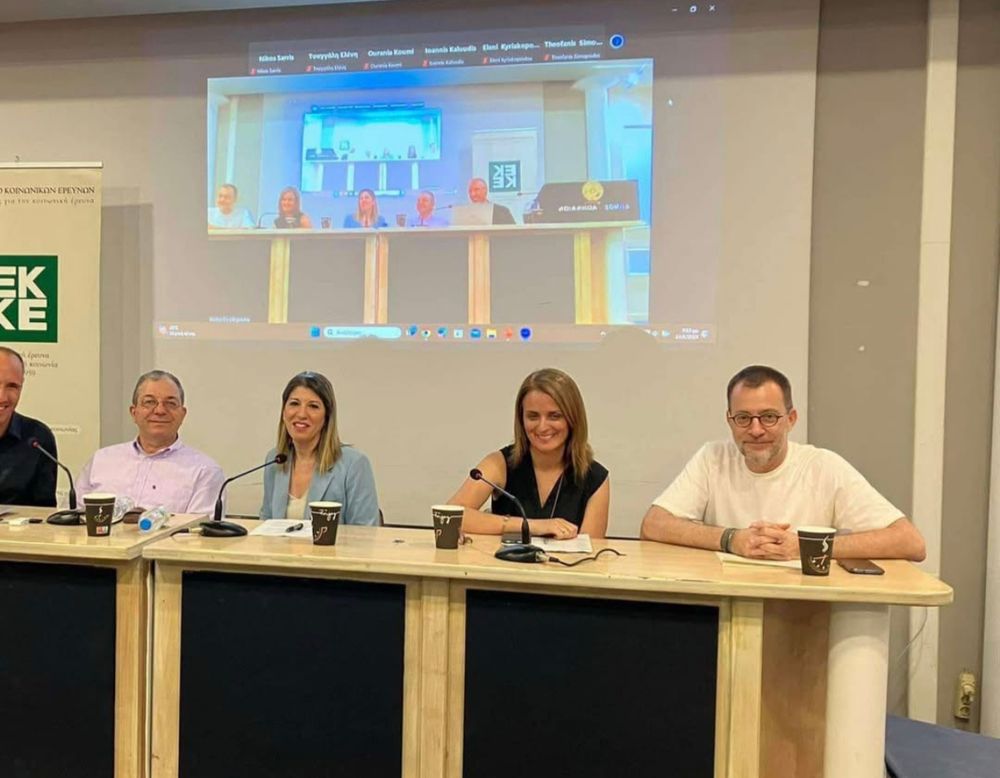
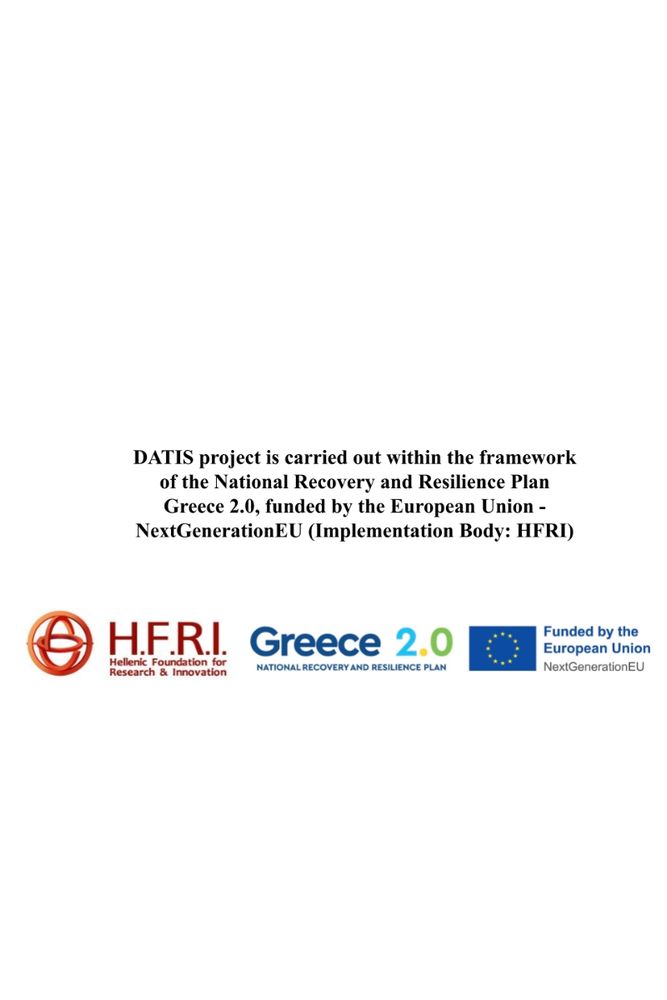
DATIS project, funded by ELIDEK, participated with a presentation by @efteperoglou.bsky.social at EEPE & EKKE event on European Elections 2024, Political and Electoral Analysis, in Athens, on June 14.
28.07.2025 10:15 — 👍 5 🔁 1 💬 1 📌 0
The presentation was about the research results of DATIS (Deliverables 4.1, 4.2, 5.1) using @isspsurvey.bsky.social data with the title: “Sequential Mixed Mode Surveys with Mobile Phone Numbers for Increased Coverage”.
28.07.2025 10:37 — 👍 4 🔁 1 💬 0 📌 0
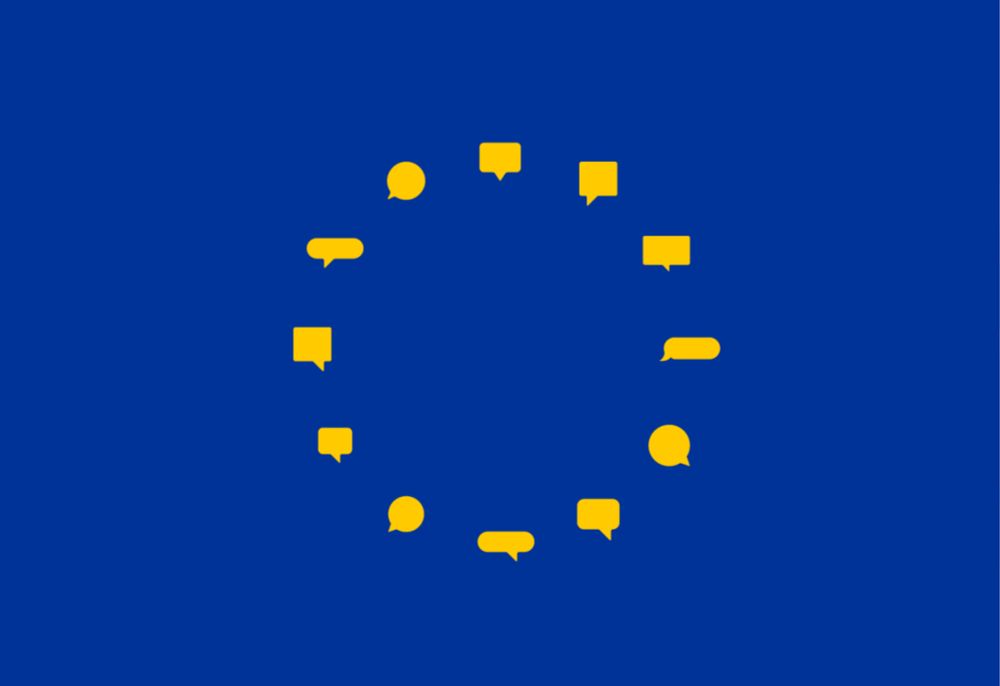
Ending Political, Electoral and Social Issue Advertising in the EU in Response to Incoming European Regulation
From early October 2025, we will no longer allow political, electoral and social issue ads on our platforms in the EU. This is a difficult decision - one
Meta ends political ads on their platforms in the EU by October because they don't want to comply with new transparency and targeting regulations.
The reasons given here are really weak. And if you do *not* allow these ads, you still need to define what they are.
about.fb.com/news/2025/07...
26.07.2025 14:57 — 👍 40 🔁 18 💬 1 📌 0
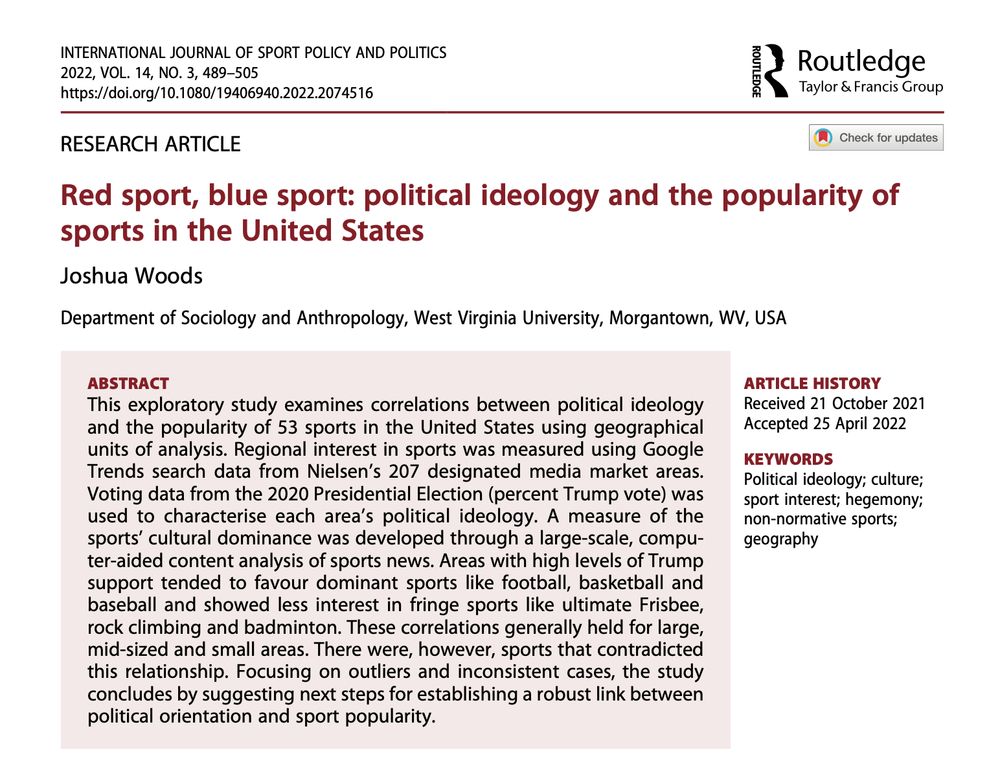
Interesting article on the (strong) relationship between political ideology and sport preferences in the U.S.
16.07.2025 19:07 — 👍 20 🔁 5 💬 0 📌 0
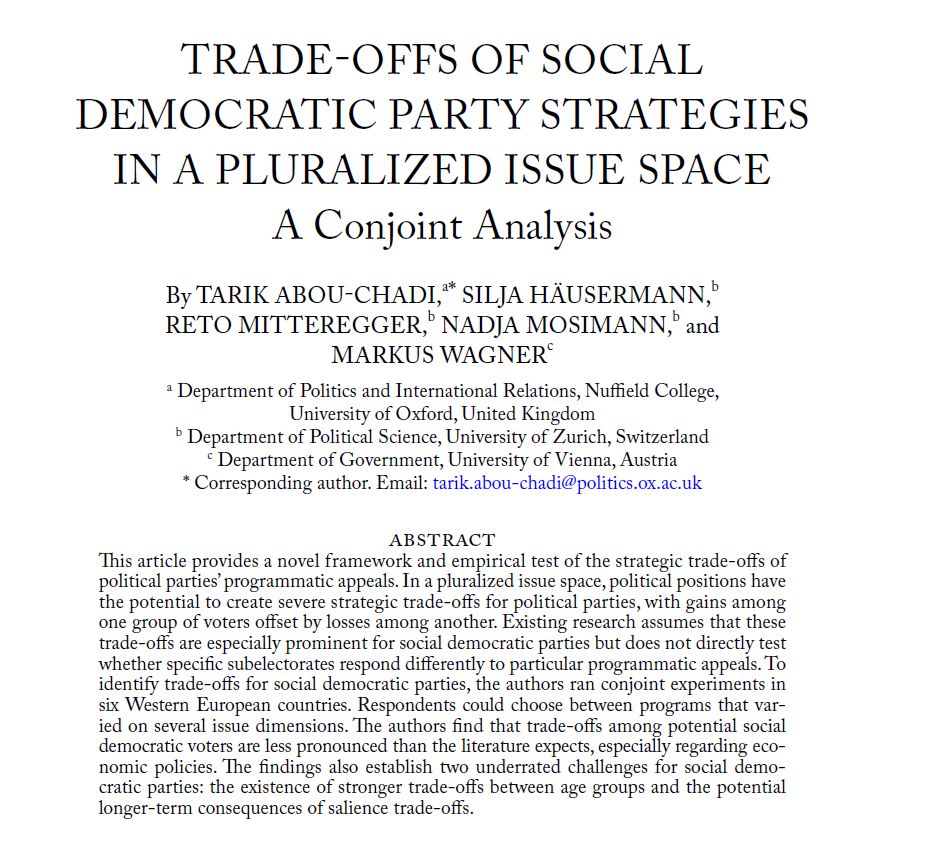
New article out in World Politcs. We analyze how different groups react to varying programs of social democratic parties. We find less trade-offs than often assumed. Generally, more left-progressive programs increase support among social democratic potentials
muse.jhu.edu/pub/1/articl...
07.07.2025 09:49 — 👍 663 🔁 254 💬 14 📌 34
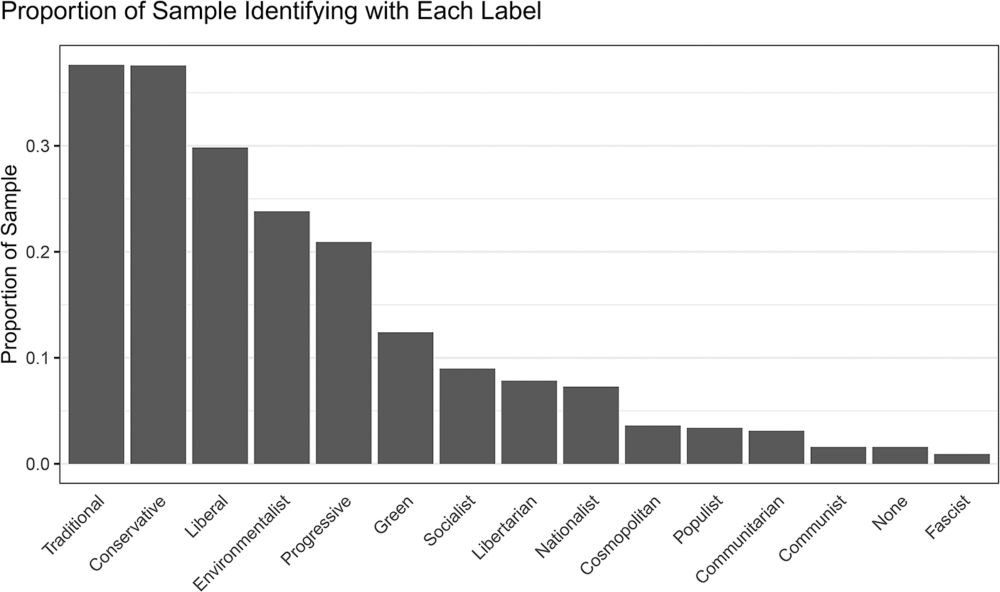
An Ideology by Any Other Name - Political Behavior
The terms ‘liberal’ and ‘conservative’ are prominent features of political discourse in the United States, and many citizens choose to identify with one of these ideological labels. Yet, many citizens...
In "An Ideology by Any Other Name," Andrew Trexler & Christopher Johnson find that many Americans identify with ideological labels beyond “liberal” or “conservative.” They show these alternative labels shape political attitudes and vote choice. Read more:
link.springer.com/article/10.1...
08.07.2025 05:10 — 👍 12 🔁 7 💬 0 📌 0
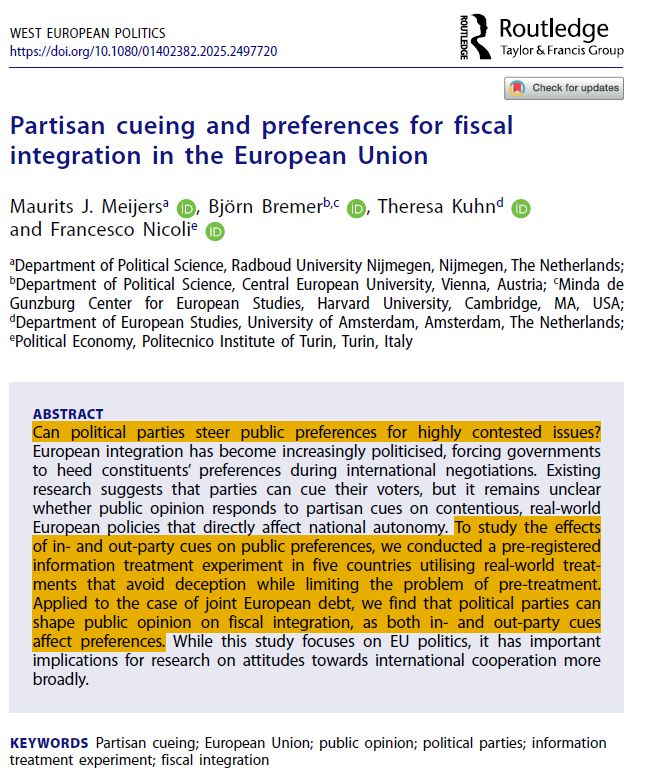
Abstract of the article "Partisan cueing and preferences for fiscal integration in the European Union" by Maurits J. Meijers, Björn Bremer, Theresa Kuhn and Francesco Nicoli. Published online first in West European Politics.

Table 1, displaying the expected effects of party cues on support for Eurobonds relative to the control group.
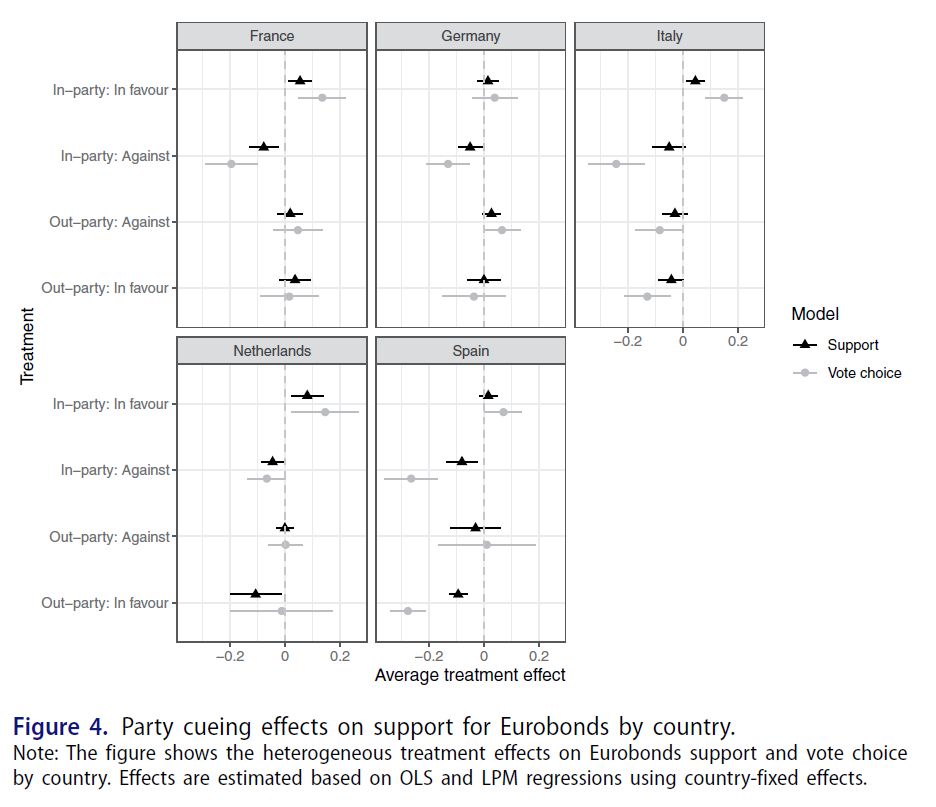
Figure 4, displaying the party cueing effects on support for Eurobonds by country.
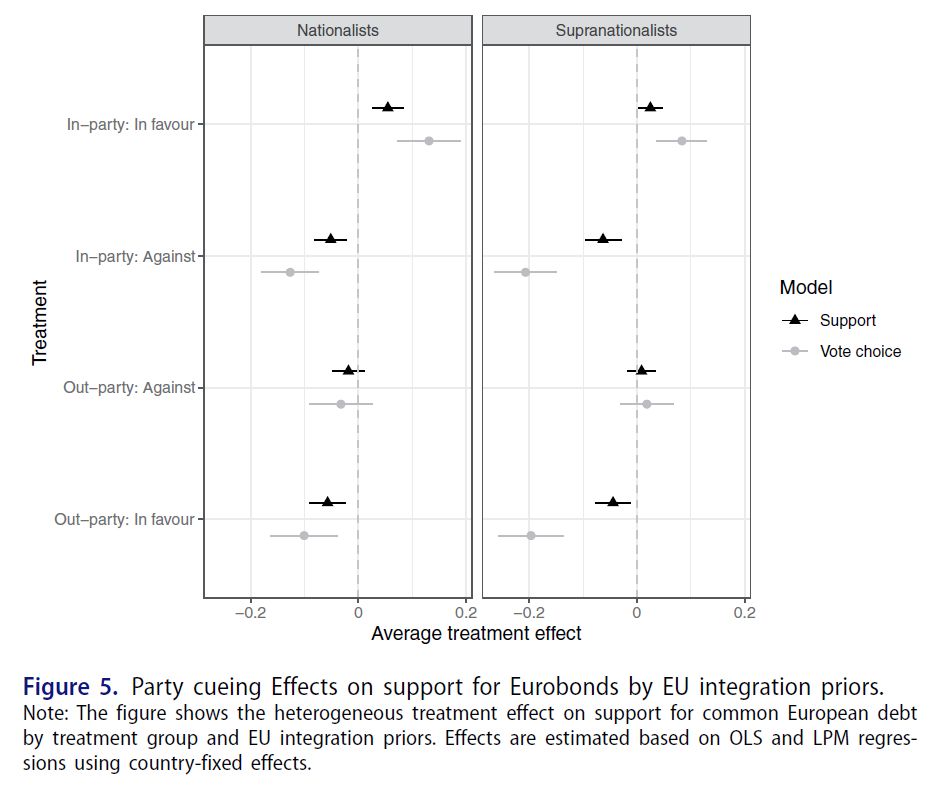
Figure 5, displaying the party cueing effecs on support for Eurobonds by EU integration priors.
Online first: "Partisan cueing and preferences for fiscal integration in the European Union" by @mauritsmeijers.bsky.social @bjoernbremer.bsky.social @theresakuhn.bsky.social & @francesconicoli.bsky.social
doi.org/10.1080/0140...
#Academicsky #Polisky
03.06.2025 19:06 — 👍 11 🔁 4 💬 0 📌 2
political scientists democratising their institutions in the age of backsliding, talk about leading by example
27.06.2025 08:07 — 👍 30 🔁 9 💬 2 📌 0
CIS at @ethz.ch | historical & empirical pol. economy, pol. behaviour, culture, social norms, gender & violence
PhD candidate in political analysis (AUTH)
Researcher @datisproject.bsky.social |
Scientific Secretary @eupoplink.bsky.social
DuckDB is an analytical in-process SQL database management system. "DuckDB" and the DuckDB logo are registered trademarks of the DuckDB Foundation.
Economics and data science | Former academic now working in the tech sector | Views my own | 🇿🇦 in 🇺🇸 | https://grantmcdermott.com/
DC. political philosopher at Georgetown. rhythm guitarist + vox for @femiandfoundation.bsky.social. Spurs fan #COYS
Standing Group on the European Union of the European Consortium for Political Research 🔬🇪🇺
The ultimate human data platform to power world-changing AI and research.
🔗 www.prolific.com
Chapel Hill Expert Survey of party positions
chesdata.eu
PhD Candidate at Aristotle University of Thessaloniki | Researcher at @datisproject.bsky.social | Scientific Secretary at @eupoplink.bsky.social
Drone pilot, cabinetmaker, and fan of classic social theory.
Owner of @americanpurpose.bsky.social
Julia is a high-level, dynamic programming language built for technical computing.
Official Bluesky account of the Julia Language Project
#JuliaLang
Postdoc at the UC3M Social Sciences department. Also seen at UPF, EUI, UB and UAB. Researching all things political inequality.
https://sites.google.com/view/bcaihuelas/
Postdoctoral researcher @HIVA_KULeuven @fwovlaanderen.bsky.social @kuleuvenuniversity.bsky.social
Working on Trust | Social Inclusion | Inequality | Democratic Engagement 🤿
Political scientist & researcher at FORS (@forsresearch.bsky.social), UNIL (@sspunil.bsky.social) | Before: Centre for Democracy Studies Aarau (@zdaarau.bsky.social), IPZ (@ipz.bsky.social)
Research Professor @ Univ. of MI Institute for Social Research (ISR) and Department of Biostatistics. Usually discussing statistics, surveys, sports, music, and leadership. Personal website: www.umich.edu/~bwest
PhD in Political Science. Discourse Analysis • Comparative Politics • Populism • Anti-populism • Conspiracism • Radicalism.
Website: https://grmarkou.wixsite.com/grigorismarkou
Researcher, likes data, graphs, infographics and telling stories with data. PhD in political analysis from Sussex uni - like all social science subjects. Mainly post about political analysis and my research within the Hastings & Rye area. Fabian member.
Editors: Klaus H. Goetz, Dorte Sindbjerg Martinsen, Wolfgang C. Müller. Posts by social media editor @martingross.bsky.social
WEP on LinkedIn: https://www.linkedin.com/company/west-european-politics/
Political scientist at the Autonomous University of Barcelona. Working on public opinion, political attitudes and democracy
www.enriquehernandez.eu
Senior Researcher at the Norwegian Defence Research Establishment (FFI). Ph.D. candidate at NTNU. Cyber and influence. These are my own not very thought through views.













